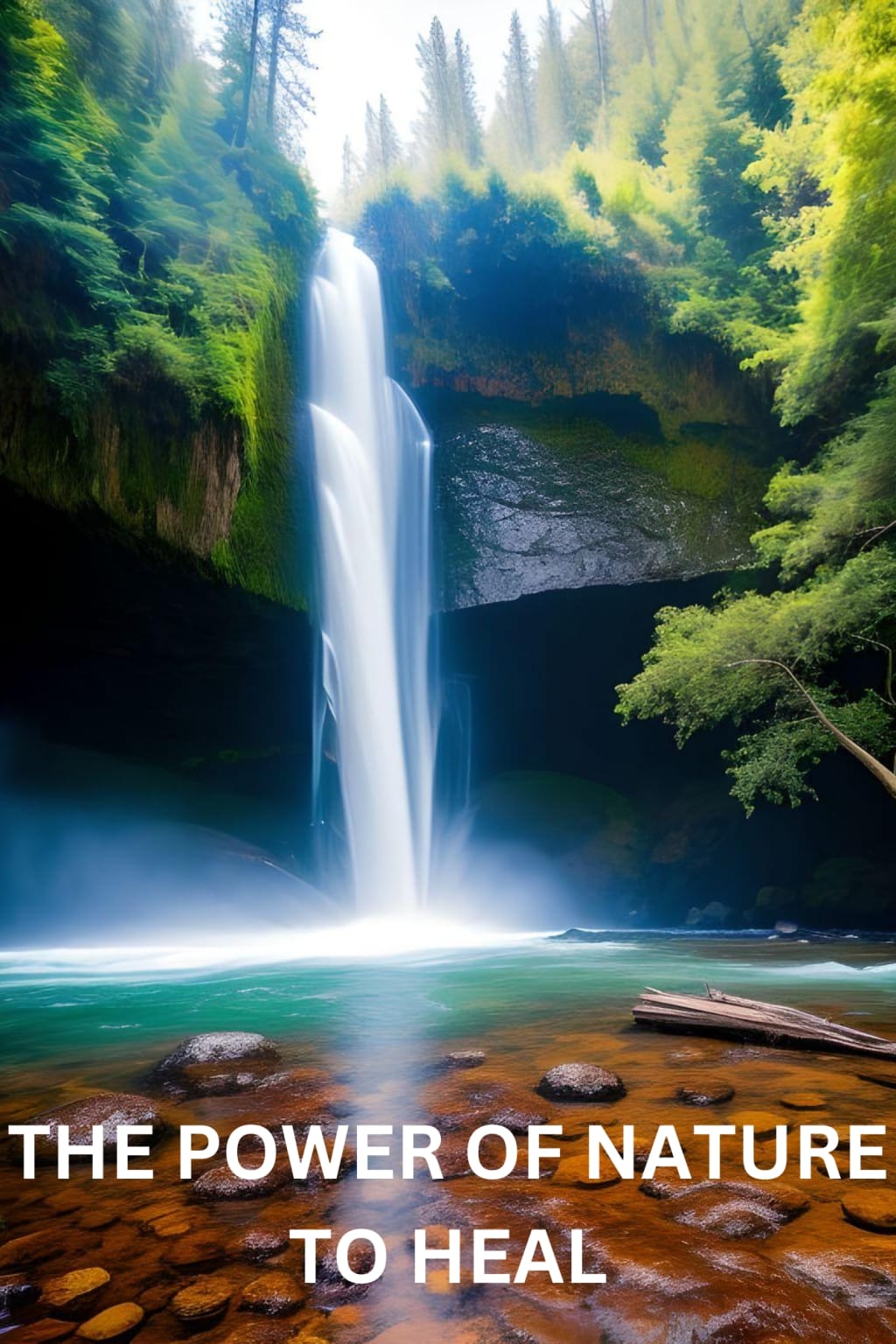THE POWER OF NATURE TO HEAL
ENJOY NATURE'S FREE GIFT

THE POWER OF NATURE TO HEAL
Most individuals would be content to take an afternoon walk while listening to the waves, in a meadow of blooming wildflowers, or under shade trees. But what if these encounters have a real impact on our well-being and physical health? Science has recently discovered evidence to support this. Participating in outdoor activities may help prevent chronic illnesses, reduce stress and depression, encourage quicker recovery and better immune systems, among other benefits.
And recent studies are starting to shed light on why this is so: being in contact with nature has an impact on our physical, mental, and cellular health. Nature may be serene, even romantic, and rejuvenating, yet it can also be fierce, strong, and destructive. Most of the time, thanks to our cutting-edge technology and contemporary metropolitan lifestyle, we are shielded from nature's darker side. Where flames previously tore through every few decades or so, they have mostly been doused and put out. However, although living a contemporary lifestyle makes us safer, it also keeps us further away from nature. A rising number of medical professionals believe that this isolation between humans and the environment is to blame for the deterioration in both physical and mental health. Additionally, it may make us particularly susceptible to anxiety, trauma, and stress.
Nature is imposing and difficult in its natural state. But might the natural world also be a source of well-being and recovery? Most of us have an innate intuition that it can. Now, research is starting to support that. Clinical research revealed that patients after surgery who could see trees from their hospital window recovered more quickly, used less pain medication, and had fewer difficulties than those who could only see a brick wall. How about psychological health? You're not alone if you've ever returned from time spent outside feeling happier, less worried, energized, and more focused. An increasing collection of scientific evidence indicates that engaging in activities outside as opposed to inside results in observable differences. According to several studies, persons who exercised outside had lower levels of stress, agitation, rage, and melancholy than those who exercised indoors.
Additionally, it was shown that individuals who spent 30 minutes or more each week in parks had much lower rates of high blood pressure and poor mental health than those who did not. Yet why? A few of the impacts seem to have psychological roots. Natural settings and experiences may heighten our sense of awe, making our worries seem less pressing and enhancing the sensation that we are a part of something greater and more magnificent. This may quantifiably lessen sadness, anxiety, and stress.
Additionally, scientists now have the technologies necessary to see brain activity and determine what truly transpires when we are in contact with the natural world. People's brains may be analyzed using MRI as they watch either urban or natural landscapes. Similarly, individuals who strolled in a field of oak trees or beside a busy road were also observed. While sights of nature engaged areas of the brain connected to pleasure, insight, and free thinking, urban pictures stimulated regions associated with stress, fear, and anxiety.
The urban walkers showed no change, while the nature walkers showed decreased activity in a brain area linked to rumination, which is typically present in depressive disorders. Disaster victims may also benefit from natural areas. People who have experienced trauma or traumatic events like storms, floods, or fires may benefit from spending time and engaging in outdoor activities. One cannot overstate the importance of outdoor activities, particularly when done with others. Similarly, PTSD patients who engage in outdoor activities like river rafting and camping exhibit long-lasting alleviation and progress. Pediatricians advise their patients to come outdoors and engage in outdoor activity, particularly in light of the advantages and cheap cost. Studies demonstrating the positive effects of outdoor activity on social interaction, pleasure, and perspective all contribute to better mental health, which gives Hauptman hope.





Comments
David Will is not accepting comments at the moment
Want to show your support? Send them a one-off tip.